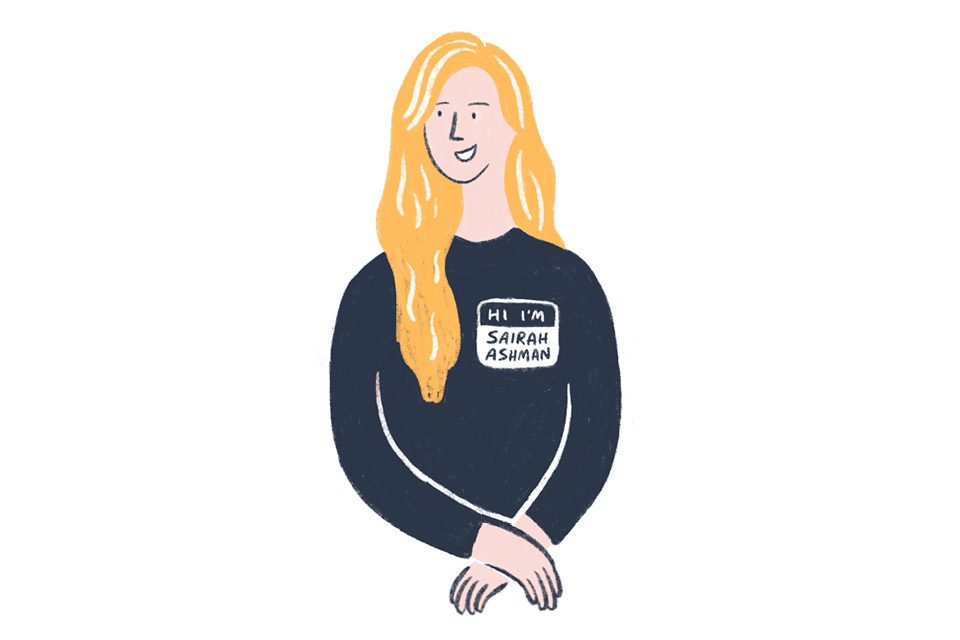As global CEO for possibly the world’s largest and most important brand consultancy, Wolff Olins, Sairah drives business direction across its various locations and partnerships. Her passion is helping ambitious leaders and teams create and build amazing brands in the world. The kind that stand for something and deliver a social and commercial impact. She is the agency’s first female CEO.
“I didn’t have a linear path into design” Some lucky people are born knowing exactly what they want to do, get trained and go for it, but I wasn’t one of them. For the first five years of my life, my mum literally put me in a shawl over her shoulder and took me around the world, which gave me a real zeal for being curious and learning new things. I left education as soon as I could because I figured out quite early on I didn’t like learning by rote.
“The careers service basically said to us, at my all-girls school, do you want to be a nurse or do you want to be a secretary?” I remember thinking, I’m clearly going to have to figure this out in a different way, so I freelanced. I tried publishing, advertising, architectural practices, always at the bottom and never afraid to get my hands dirty. I liked design, got the job at Wolff Olins and ended up staying longer than I ever intended. I’ve been here for 25 years.
“At the time, whenever I would visit organisations or clients, most of the people in senior positions were men with women in supporting roles” The relationship was almost like the domestic one being mirrored in the workplace. The guy would stand up and do all the talks and the women would be back in the office making everything happen. Having said that, Wolff Olins did have some very strong female leads, which was great for someone like me to see.
“I don’t think you have to look upwards to be inspired” I worked with a creative partner called Marina Willer for the best part of ten years, who is now a partner at Pentagram. We championed each other as we were rising, protected each other in a bubble when we needed to build confidence and push each other to do ever-better things. Those relationships are important — to not feel like you have to do it all on your own.
“Diversity is even more important than normal in a business likes ours as brands are cultural as well as commercial” In order to be able to create really powerful and compelling brands, you have to bring different perspectives, different ways of solving problems and you have to have a really big sense of who they are being designed for. If you have one type of person doing it one type of way, it’s hard to create something powerful and respected. Bringing in different perspectives stops you from having blind spots and gives you far more notes to play with as a brand.
“Brands have today become causes and diversity and inclusivity are part of this” But it isn’t just this generation – generations before simply did not have ways of communicating what they want en masse. Pre-internet if you wanted to read a thought about something, you practically had to post an opinion piece or write to a newspaper editor. Nowadays you can mobilise around a point of view easily and call things out in a way that you couldn’t before. That’s been the big change.
“Role models are so important” My idol when I was growing up was Anita Roddick [founder of The Body Shop]. She had a fighting spirit to really make a difference and put everything on the line. It was very personal, she really cared about what she was doing for social good. That might have become very popular for brands now but it wasn't the norm then. Her motto was “if you think you’re too small to make a difference, try going to bed with a mosquito.”
“There is still work to do. It’s still not 50/50.” In my industry I still represent a deviance from the norm. I am a big advocate of coaching and mentoring as I think it’s important to step up and be visible so others can know it can be done. It’s a constant work in progress to create a workforce that propagates people with different skills, attitudes and personalities so that everyone can get ahead. You can’t take it for granted.
